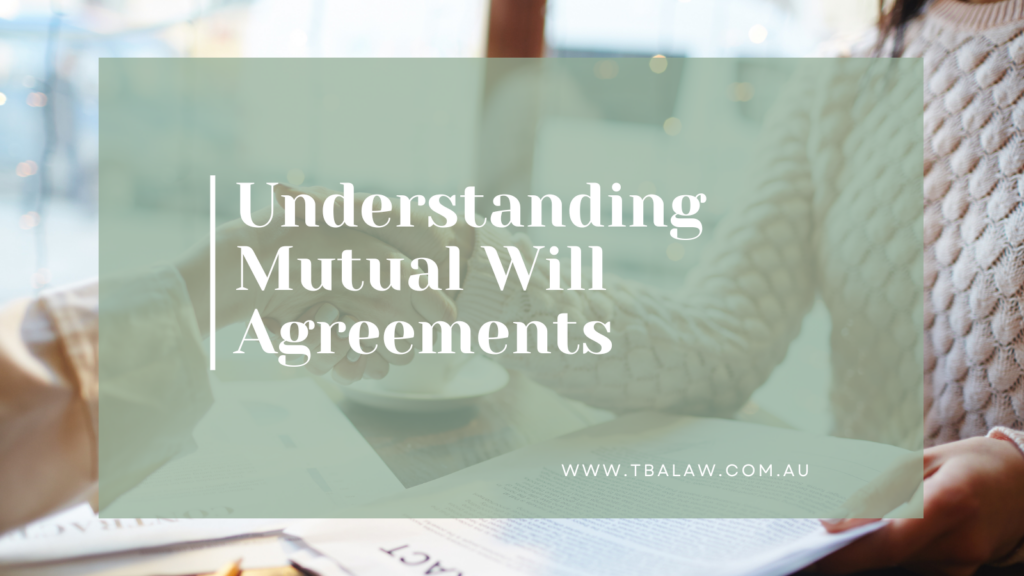This is a less common form of legal agreement, but one that could be crucial for specific situations. To break it down, a mutual will agreement is typically between two parties, generally a couple, who agree to execute their wills in a specific manner, promising not to change their wills without the consent of the other.

What’s a Mutual Will Agreement?
A mutual will agreement can be executed by any two parties, but it’s most frequently seen between husband and wife, and extends to any type of relation including brother and sister, sister and sister, or brother and brother, to name a few examples. The two parties agree to create identical wills, which holds true for most couples.
However, a mutual will agreement is used when there’s a concern that the wishes of one spouse won’t be carried out after the other passes away. This type of agreement commonly appears in blended families, ensuring equal treatment for both sides of the family.
Let’s consider a case where there’s a blended family. The husband and wife leave everything to one another, and their collective will leaves their assets equally distributed amongst all their children, from both their previous and current relationships. Their concern might be that if one spouse were to pass away, the surviving spouse could remarry and leave everything to the new spouse, or there’s a risk of their children not being adequately provided for in the will.
The Purpose and Benefit of a Mutual Will Agreement
A mutual will agreement can ensure that spouses cannot unilaterally change the will. After the demise of one of them, the will is effectively locked in time to ensure the agreed terms are upheld.
However, this agreement only applies to the capital that existed during the life of the spouse who first passed away. Should the surviving spouse remarry and acquire more assets, they are free to deal with those additional assets separately. The original assets, however, remain locked for equal distribution among the four children from both sides of the family.
This agreement could also be utilised by siblings who live and invest together but haven’t married or had children. Such an agreement ensures their wishes are met even if one of them were to pass away first. It’s a way to safeguard certainty that your wishes will be carried out as per your desire.
Interested in learning more about mutual will agreements or other estate planning matters?
Feel free to reach out to us- send us an email at admin@tbalaw.com.au or you can call 1300 043 103 to book an appointment.






Leave A Comment